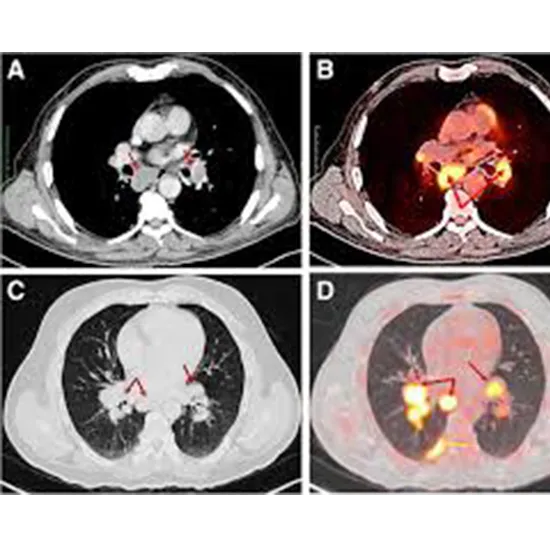
A CECT (Contrast Enhanced Computerized Tomography) chest scan produces a detailed three-dimensional image of the chest or thorax in order to identify problems with the heart, lungs, food pipe, rib cage, spinal column, and surrounding soft tissues. It is a diagnostic procedure that involves the injection of contrast material and the use of rotating X-ray beams.
Doctors recommend this test to look for any underlying chest problems such as:
* Examine Congenital Abnormalities. * Injuries to blood vessels, lungs, ribs, and so on.
* Cancer * Pneumonia * Tuberculosis
This test is typically performed to determine the cause of symptoms such as coughing, shortness of breath, and chest pain, as well as to detect the presence of any tumours or injuries to the internal organs. It also aids in the detection of congenital abnormalities (birth defects) and guides intervention procedures such as fine needle biopsy. If abnormalities are found in a standard test, the doctor may recommend this test to make a more detailed assessment.
This test is performed for various reasons such as, to identify the source of symptoms such as coughing, shortness of breath, chest pain, and so on.
To detect heart, lung, food pipe, liver, stomach, and other organ inflammations or infections
To detect trauma-induced injury to internal organs, rib cage bones, or the spine
To conduct a thorough examination if some abnormalities appear on a standard chest X-ray.
To check for the presence of any tumours (abnormal growth)
To look for congenital abnormalities (birth defects)
To guide intervention procedures such as fine needle biopsy
You should be aware that if you are pregnant, you should notify your doctor (and the x-ray technician) because the radiations may harm the foetus. If necessary, precautions can be taken to reduce the fetus's exposure to radiation.
You may be required to remove any jewellery or metal objects that may interfere with the image.
Before proceeding with the procedure, have a blood urea and creatinine test performed to assess kidney function and ensure the safety of the contrast.
A CECT (Contrast Enhanced Computerized Tomography) chest is typically performed in a hospital's radiology department or an outpatient imaging facility. So, for the best services and reliable results, schedule your test at Ganesh Diagnostic in Yamuna Vihar.